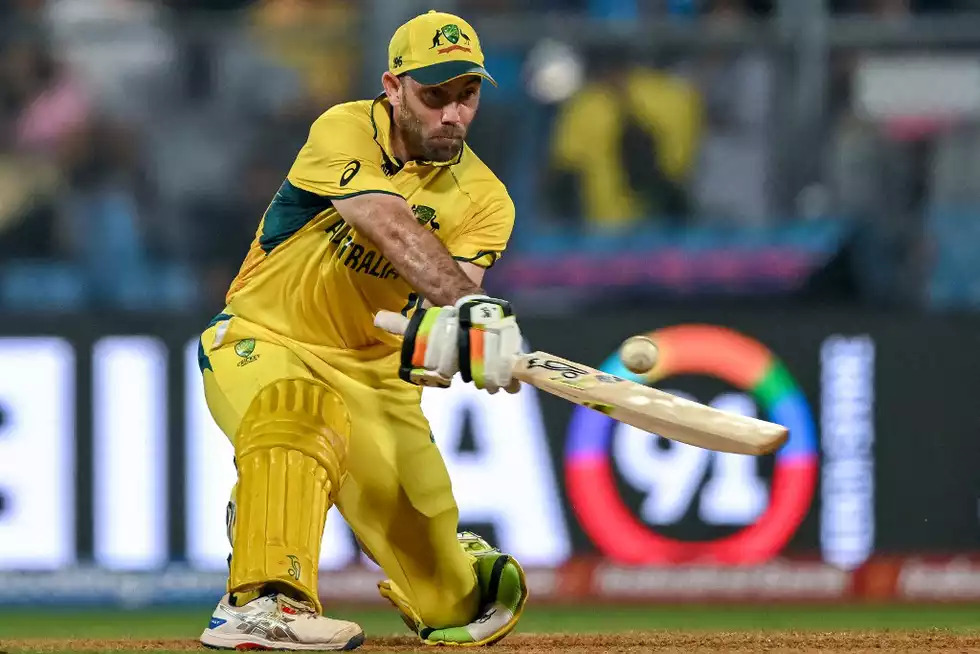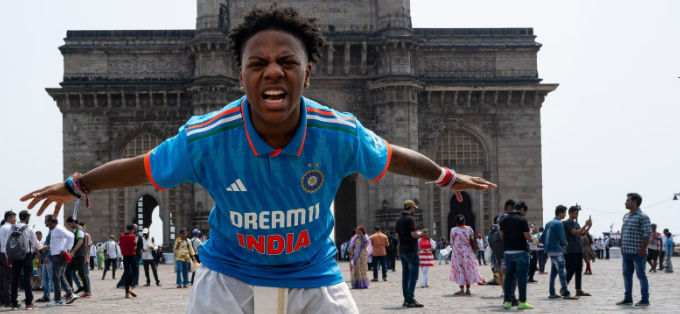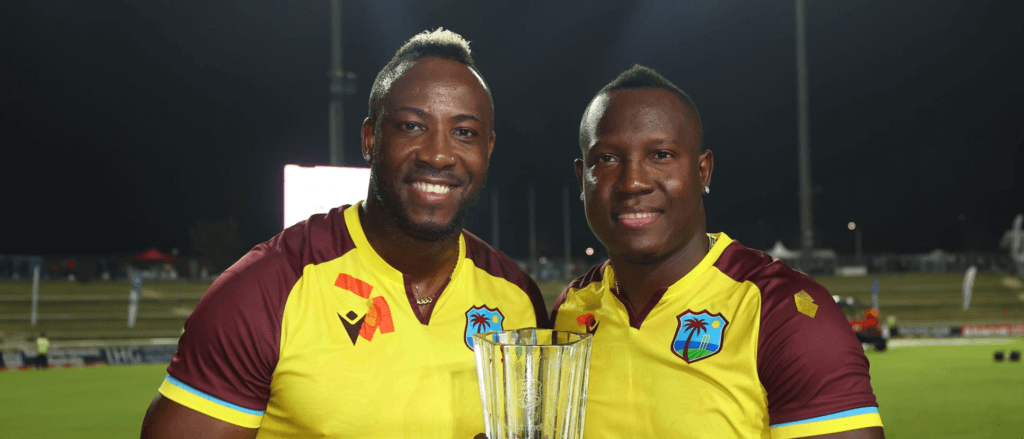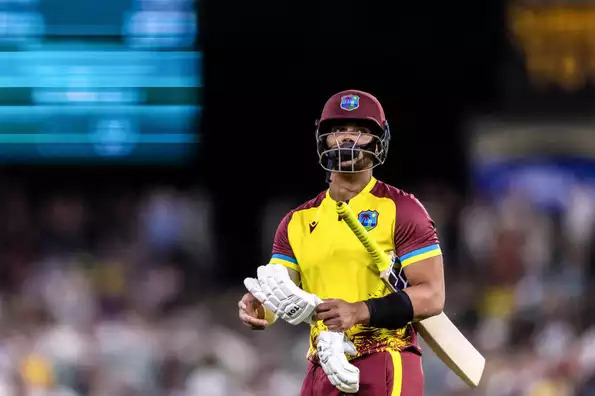
“Wow”. The exclamation escaped Pat Cummins’ mouth the moment it did yours as you bumped into the Australian captain outside the press conference room. It was instantaneous. It was simultaneous. You weren’t the only two though.
“Wow”. It’s what thousands around the Wankhede Stadium had exclaimed in unison, repeatedly and on cue, for nearly an hour. It wasn’t just them though.
“Wow”. It’s what millions around the cricket world had yelled out at their television screens, lamenting for sure about not being at the Wankhede in the flesh to witness arguably the most immortal knock in white-ball cricket history.
We, like Cummins, will never forget the night we witnessed the “greatest thing you’ll ever see on a cricket field” by Glenn Maxwell. Hyperbole? No, not even this once, not even close.
“Wow.” About Glenn Maxwell, what else could you possibly say? After what he’d just accomplished, what else could you say? How else could you feel about having watched the most remarkable performance with bat in hand perhaps in the history of the sport?
This was more than simply an extraordinary performance, and it was certainly above and above the norm. This was the pinnacle of creative brilliance. Someone with freakishly exceptional talent was carving his brilliance into stone. This was a snapshot of history. The sort that inspires the common practice of “building the man a statue” The severe aches in Maxwell’s feet, however, made it feel as though he had already been transformed into a statue. He stood still. His toes, his hamstring, his back, his calves, all having retired for the night in the November humidity of Mumbai.
On that day, Maxwell disproved every batting theory ever posited. Footwork? In what way?
Is it possible to hit sixes without a solid lower base? Not necessary at all.
In between the wickets, if you will. Like a penguin making its way quickly from land to sea, I’ll merely power walk across the field.
With his back locked up, he was forming his own base above the waist in order to launch Rashid Khan over the long-on fence and into the upper deck of the Sachin Tendulkar Stand. There he was, using only the strength in his arms to slap a slower delivery from Naveen-ul-Haq outside his off-stump to the middle of the Vijay Merchant stand on the western side of the field. He was able to generate enough forward momentum to get past the cover fielder and two boundary fielders when facing length deliveries from Azmatullah Omarzai. The ball sailed well over the third fence thanks to his magnificent reverse ramp shot, which required nothing more than the strength of his wrists off his stumps. He was just playing on pure instinct, determination, and that special Glenn Maxwell flair, making moves that you couldn’t explain and eventually gave up trying to understand and instead said, “Wow.” Sometimes, in complete disbelief, you may even cover your mouth with your hands. Stunned to the core. In utter confusion.
Not every instance in which he located the limit was so dramatic. A number of more shots, leaden-footed drives that would have gotten him a few on any other day, were also completed with no discernible method of doing so. Then, just as mysteriously, he began to move. At the other end, Cummins had faced 23 dot balls in a row, and it was obvious that the two had chosen not to sprint between the wickets because Maxwell couldn’t. Maxwell surprisingly opted to make his way across the pitch, moving as if he were standing atop a wet towel while trying to wash the floor, after the push from Cummins missed Rashid’s right hand.
He had already gone down while trying to hit a similar single, several overs earlier. In the center of the Wankhede, he had lain entirely prone, as if on a stretcher, with his hands at his sides, his legs connected, and his head flat on the ground. Maxwell collapsed to the ground near the striker’s end as if he had been shot, but he managed to finish the single and hobble halfway across the field. The medical personnel had previously responded to him several times for cramping. The umpires, led by Alex Wharf, were worried about the Victorian superstar this time. Maxwell’s body may have finally given up the fight; even Cummins appeared to agree. He gave the order for Adam Zampa to exit the building. The leg spinner had come down the ramp and was waiting for Maxwell to be wounded so he could cross the ropes and retire. Then, as we would hear later, largely thanks to the counsel of physio Nick Jones, Maxwell managed to get back up on his feet and resolve to press on.
At this point, Maxwell was within striking distance of his target of 150. He had already put together an unforgettable inning. He’d already penned an epic. However, he had more to say.
In addition to the widespread shock at what Maxwell was accomplishing with his barely functional body, Australia was also witnessing a massive reduction in the chances against them. When Cummins came out to join him, Australia was in a dire strait at 7/91, still over 200 runs away from their winning target. Afghanistan, who had previously annihilated the Australian top order, posed a threat as the tournament’s second-best bowling attack. Rashid was bowling better than he had at any point in the World Cup. At first, Maxwell’s life was a fairy tale based on events in Afghanistan. He was preparing to adapt a folk tale from Afghanistan into a superhero epic.
As part of their world record attempt, Maxwell and Cummins came up with the unusual plan of having the batter with the fewest remaining body parts do all the scoring because the healthy batter wouldn’t bother. And he did, in a partnership that will go down in cricket history as one of the most unbelievable encounters of any kind. To put things in perspective, Cummins had the greatest view of the action from the opposite end while Maxwell scored the first ODI double century in a run chase. And he finished with an unbeaten 12 off of 68 balls, the third slowest double-digit innings in ODI history and the second slowest in World Cup history. His major job was to distract the Afghans, especially their world-class spinners, so that everyone could marvel at Maxwell’s feats. Even to the point of standing on the sideline of the field opposite the one being used for the match with his bum on his bat handle whenever Maxwell was on strike. And like everyone else around the Wankhede, except those in the Afghanistan camp, he stood applauding every time his remarkable teammate managed to disregard the perceived limits of the human body and sent the ball soaring into the night sky. And into the tens of thousands that packed the Wankhede stands, where they sat eating out of his hands—the only part of him that was still working.
You have to question whether or not a single match or innings can sum up a cricketer’s whole career. Sure, if you manage to play the best knock the sport has ever seen while only using a few of your muscles and missing half your leg.
Like with all epics in all folklore, and as one that will be told and retold through the ages, there was an inevitability to Maxwell not only finishing it off but doing so in a way that would leave him speechless and struggling to soak it all in as those who were there and those who will hear about it for generations to come.
The man who fell off a golf cart and got concussed a week before had left everyone else feeling silly, disillusioned and overwhelmed, even as he soared to enter the pantheon of the greats. And like Pat Cummins, all we can do is to bow down to Glenn Maxwell and his freakish genius and go, “Wow”.










